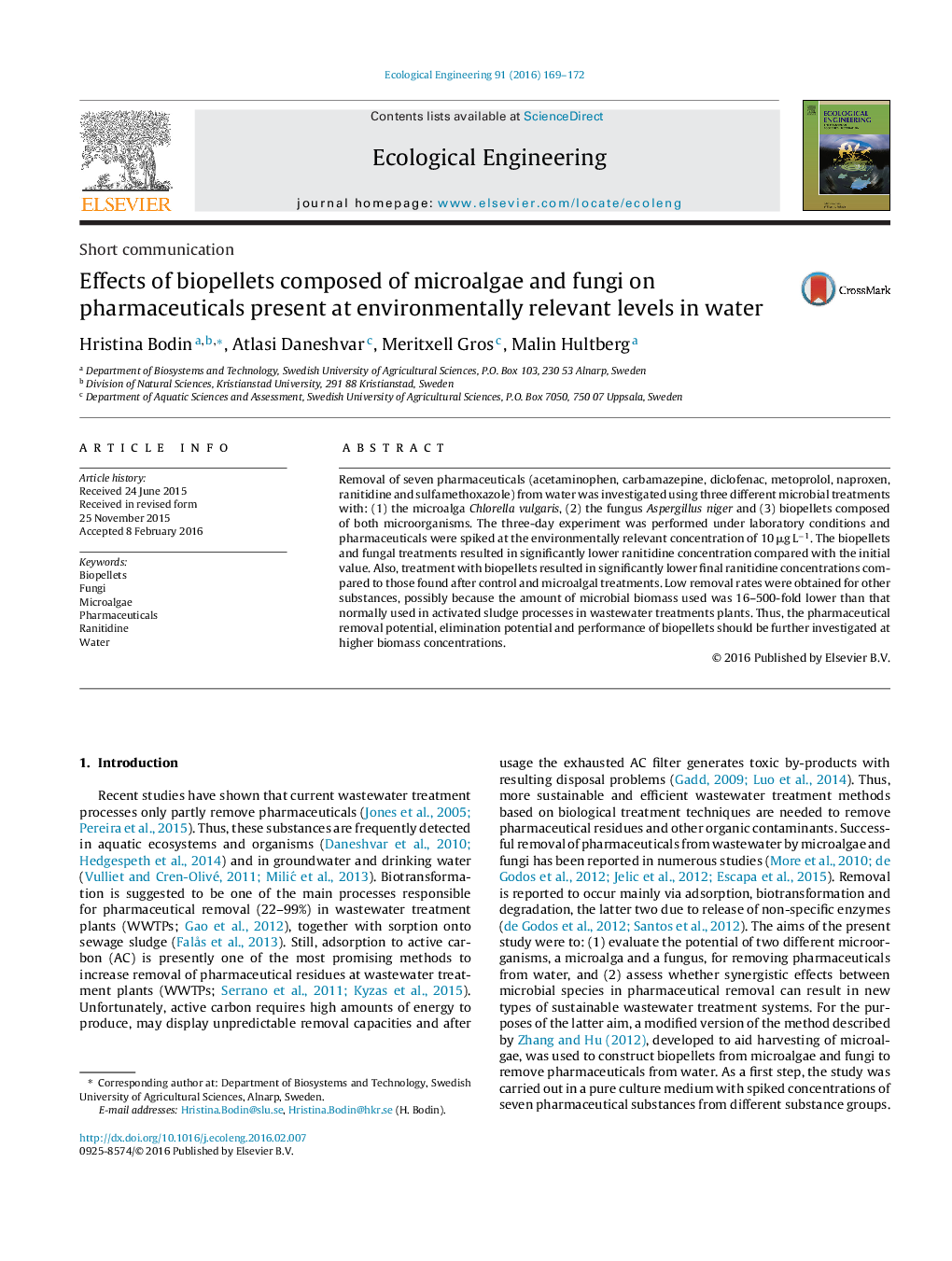| Article ID | Journal | Published Year | Pages | File Type |
|---|---|---|---|---|
| 6301302 | Ecological Engineering | 2016 | 4 Pages |
Abstract
Removal of seven pharmaceuticals (acetaminophen, carbamazepine, diclofenac, metoprolol, naproxen, ranitidine and sulfamethoxazole) from water was investigated using three different microbial treatments with: (1) the microalga Chlorella vulgaris, (2) the fungus Aspergillus niger and (3) biopellets composed of both microorganisms. The three-day experiment was performed under laboratory conditions and pharmaceuticals were spiked at the environmentally relevant concentration of 10 μg Lâ1. The biopellets and fungal treatments resulted in significantly lower ranitidine concentration compared with the initial value. Also, treatment with biopellets resulted in significantly lower final ranitidine concentrations compared to those found after control and microalgal treatments. Low removal rates were obtained for other substances, possibly because the amount of microbial biomass used was 16-500-fold lower than that normally used in activated sludge processes in wastewater treatments plants. Thus, the pharmaceutical removal potential, elimination potential and performance of biopellets should be further investigated at higher biomass concentrations.
Related Topics
Life Sciences
Agricultural and Biological Sciences
Ecology, Evolution, Behavior and Systematics
Authors
Hristina Bodin, Atlasi Daneshvar, Meritxell Gros, Malin Hultberg,
